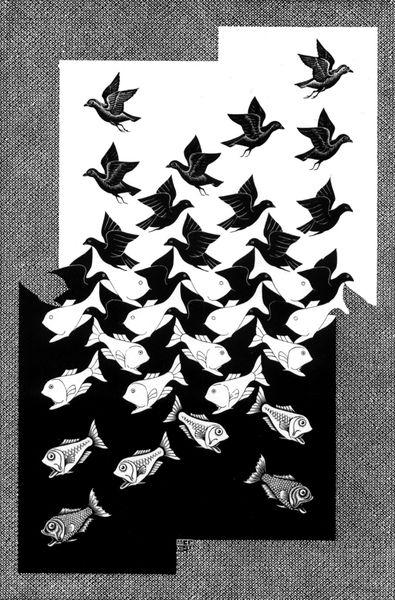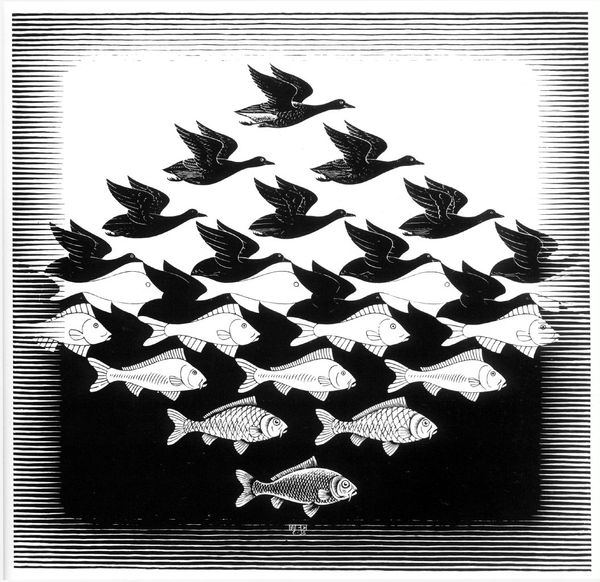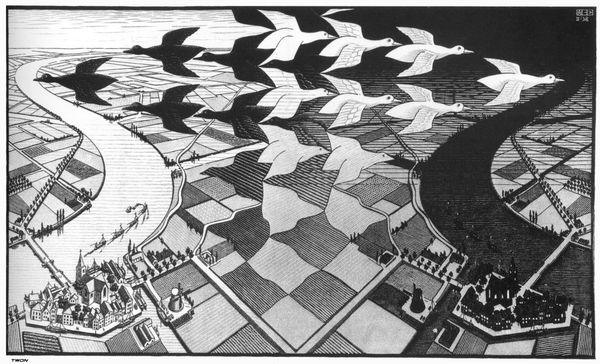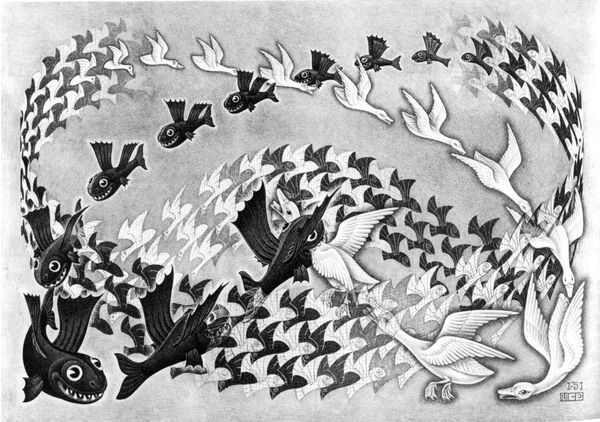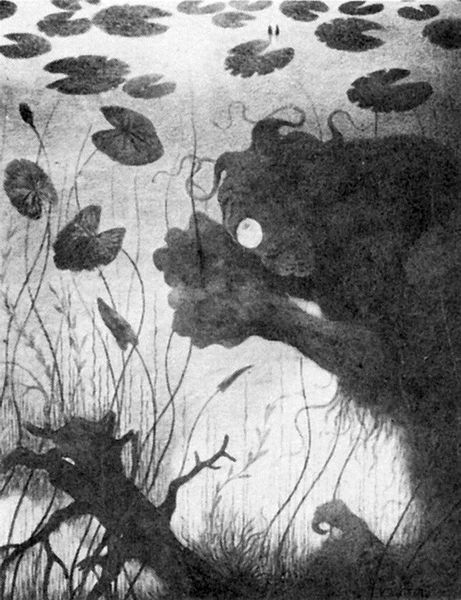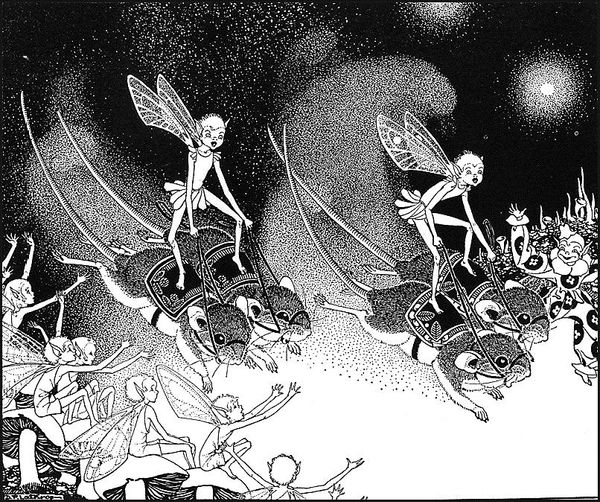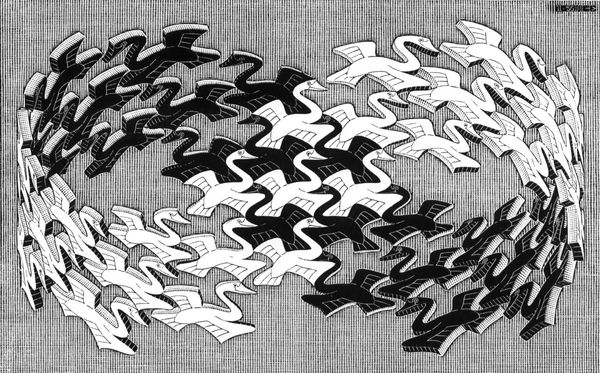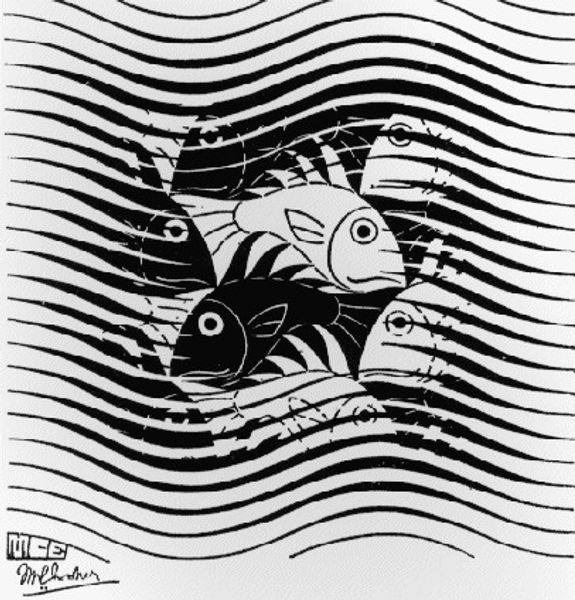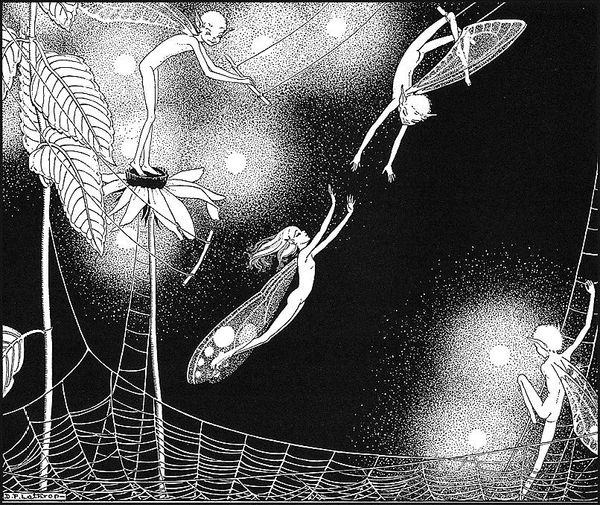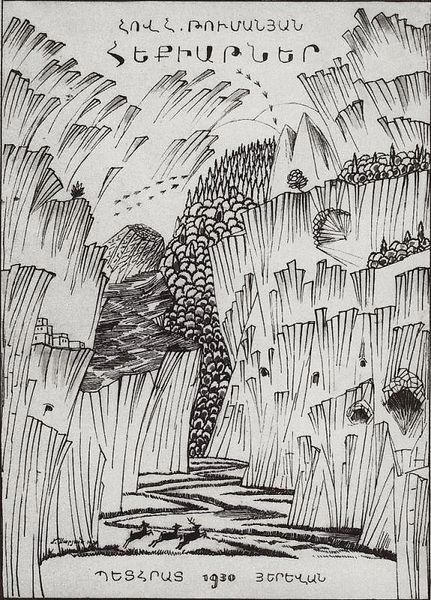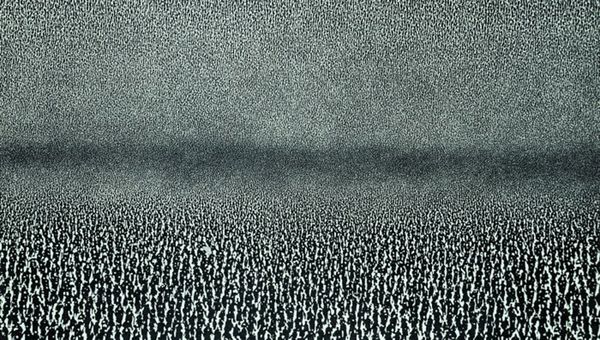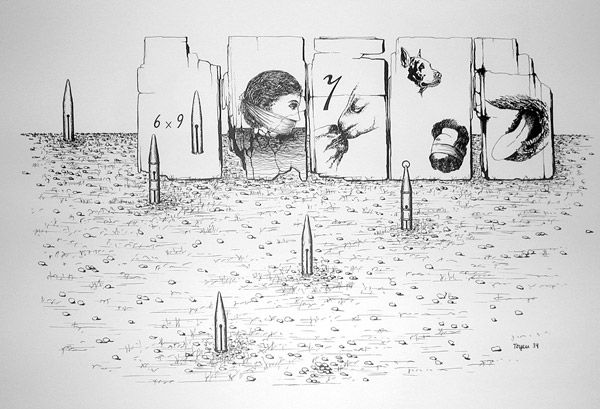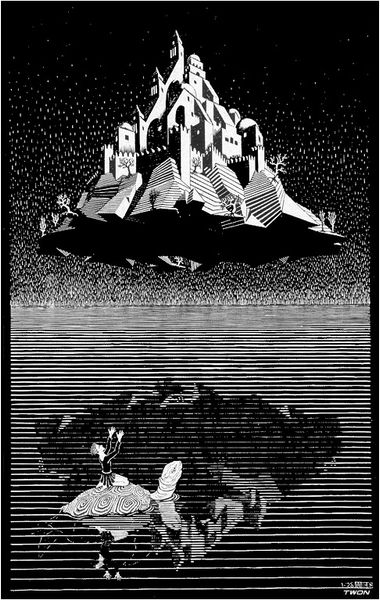
Copyright: M.C. Escher,Fair Use
Curator: This print, made in 1955, is M.C. Escher’s “Three Worlds”. It’s rendered with graphite on paper. What strikes you first about it? Editor: An almost uncanny tranquility, a kind of suspended animation. The stark contrasts of light and shadow create a dreamlike space. Are those... fish? Curator: Precisely. Escher masterfully layers three distinct yet interconnected planes: the air above, suggested by the bare branches; the surface of the water, scattered with floating leaves; and the underwater realm, inhabited by the fish we see beneath the leaves. Editor: This is just… incredibly ambitious for a drawing. I am really struck by what feels like Escher’s deliberate destabilizing of our perception. Is this a landscape, a portrait, or something else entirely? It really pushes back on how we read these symbols—trees, water, fish— within the landscape genre. Curator: It's almost as if Escher wants us to question our perception of reality itself. By juxtaposing these three distinct "worlds" in a single image, he prompts us to reflect on the interconnectedness of everything, visible and invisible. Look closer, notice how each element seems to both exist independently and contribute to the overall composition. Editor: Absolutely. There's a definite commentary here on interconnectedness, but also about visibility, what’s unseen, and what gets represented. How can we talk about nature or reality without acknowledging multiple perspectives? Is Escher perhaps trying to disrupt a dominant “surface level” way of seeing the world? Curator: You’ve articulated that very well. The longer I gaze, the more I wonder if he also sought to expose a more subtle, poetic essence of nature, a reminder to discover new layers of understanding—sometimes literally below the surface. It makes me want to wander near a pond, or lose myself in a forest... perhaps bring my sketchbook with me! Editor: Absolutely! Looking at "Three Worlds," I’m inspired to be more thoughtful about perspectives and reflect more critically about representations. And perhaps start keeping a sketchbook, too!
Comments
No comments
Be the first to comment and join the conversation on the ultimate creative platform.
